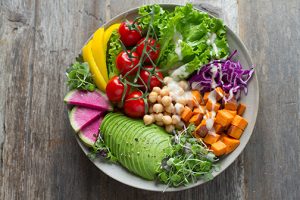- Immaculately Clean Facility
- Fully stocked changing rooms and showers
- FREE Body Scan
- FREE towel service
- Nutrition Coaching & Accountabiliy
- Expert coaches
Skip to content
 Everyone wants the best and most effective diet for shedding fat and maintaining good health. Some people in Sacramento, CA, have turned to a low-carb diet. Is it easier to maintain? Does it work? Is it all hype and another way to sell books or get clicks on articles? Low-carb diets aren’t new. They’ve been around since the mid-1800s when Claude Bernard, a French physician, gave a dietary theory conference
Everyone wants the best and most effective diet for shedding fat and maintaining good health. Some people in Sacramento, CA, have turned to a low-carb diet. Is it easier to maintain? Does it work? Is it all hype and another way to sell books or get clicks on articles? Low-carb diets aren’t new. They’ve been around since the mid-1800s when Claude Bernard, a French physician, gave a dietary theory conference
and Dr. Harvey heard it. It was the origination of a low-carb diet. He later filled in for the doctor of William Banting and tried out the theory. After years of failed attempts to lose weight, Banting finally had a successful outcome with this diet. In 1863, Banting wrote a pamphlet inspired by his success called On Corpulence. It was the first low-carb diet.
What was the miraculous advice?
The advice that Banting heard and followed was simple. It was to give up beer, sugar, milk, butter,bread, and potatoes. He also suggested to fill in the gap with vegetables that weren’t starchy. In the mid-1900s, Dr. Atkins revived that low-carb approach with his book Dr. Atkins’ Diet Revolution. A newer, healthier approach divides the meal by macronutrient calories. The division increases the calories from protein and reduces those from carbohydrates.
Reducing carbohydrates works, but why?
Sugar is a carbohydrate. Reducing sugar and other simple carbohydrates lowers insulin levels and prevents blood sugar spikes. Insulin does other things besides regulating blood glucose levels. It stores energy by triggering the production and storage of fat. It causes the body to burn glucose and avoid burning fat, so it limits the fat the body burns. Reducing insulin levels allows your body to burn fat cells and makes weight loss easier.
Low carb diets eliminate many of the junk foods that trigger dopamine.
Junk and highly processed foods are high in sugar and trigger the release of dopamine, the body’s reward system. It’s instinctive and helped early man survive. Early man required calories to exist. Food that didn’t taste sweet was often poisonous. To encourage eating sweet foods and avoid toxic foods, the brain’s reward system releases dopamine, encouraging early man to eat more sweet foods. It’s still instinctive today. Cutting out reward-style foods with sugar helps you eat less by withholding a reward. Low-carb diets are higher in protein. Protein requires more calories to be burned for digestion. In the initial stages of very low-carb diets, extra calories are burned during gluconeogenesis, transforming protein to glucose. Protein also diminishes appetite and increases muscle mass.
- Rapid weight loss on low-carb diets often occurs due to water weight loss. Other weight loss occurs because lower carbohydrates often result in lower calorie intake.
- Whether you choose a low-carb diet or another type of diet, making a lifestyle change to healthier eating is what counts. Cutting out food high in sugar and starch that offers few, if any, benefits helps.
- Our nutrition coaches can help you with personalized dietary recommendations that consider personal preference and special dietary considerations. We even provide meal plans that make it even easier to eat healthy.
For more information, contact us today at Team-ISC



